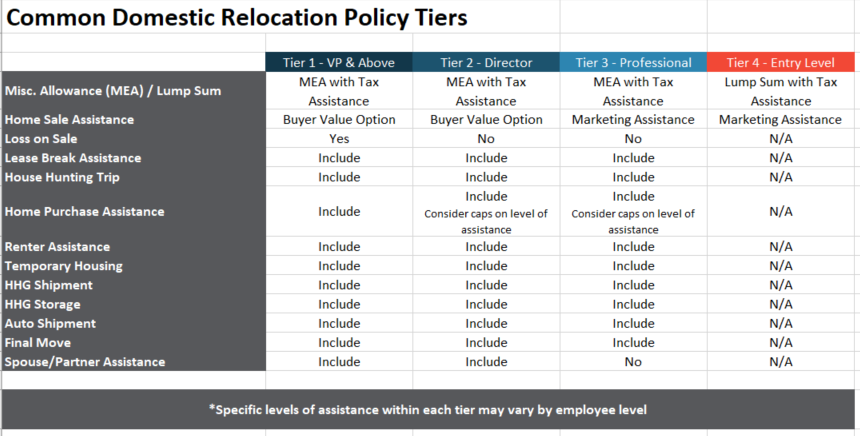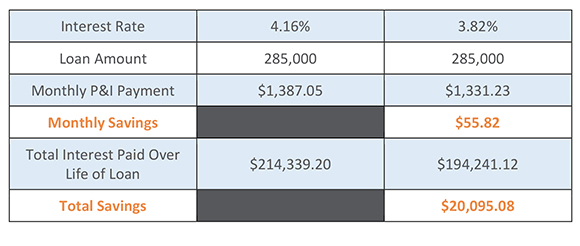When interviewing for a new job, make sure your relocation needs are met
Negotiating a relocation package involves understanding what is covered, discussing expectations with your employer, and being willing to compromise. Read on for a comprehensive look at arranging a relocation package with your employer so you can confidently navigate your move with ease and peace of mind.
Understanding what is covered in a relocation package is crucial before negotiations. Typically, a relocation package includes moving costs, temporary housing, transportation, and even assistance with selling or renting your current home. It is essential to clearly understand what expenses will be covered and what will not be so that you can plan your budget accordingly.
Negotiating a relocation package requires a certain level of flexibility and compromise. While it is essential to advocate for your needs, it is also crucial to understand that your employer may have limitations or constraints. Be open to discussing alternatives or finding creative solutions that benefit both parties. For instance, if your employer cannot cover certain expenses, they may be willing to provide a higher salary or additional benefits to compensate.
Remember, maintaining a positive and collaborative attitude is critical to successful negotiations. Approach the conversation with a willingness to find common ground and reach a mutually beneficial agreement. Be prepared to provide supporting documentation or evidence to justify your requests, such as cost estimates for moving services or rental prices in the new location. This will demonstrate that you have done your research and are making reasonable demands.
Here are some points to cover when negotiating for relocation assistance:
Understand What Relocation Expenses are Covered
Employers typically offer a relocation package to assist with the costs associated with moving. This package can encompass various expenses, such as:
– Costs relating to travel, including transportation and hiring professional movers.
– Assistance with selling your current residence or purchasing a new one.
– A lump sum of money is provided to cover general moving expenses.
– Support in obtaining a work visa if necessary.
It is crucial to clarify which expenses will be covered when negotiating your relocation package with your employer. Understanding the specifics beforehand will allow you to plan accordingly and ensure a smoother transition during the relocation process. Whether you must pay for these expenses upfront or are eligible for reimbursement, having this information beforehand is essential.
Discuss Your Expectations
Being honest and open with your employer regarding your expectations and desired outcomes is crucial. Communicate the specific assistance you require from them, and provide any relevant information that could impact their decision-making process. Additionally, it is advisable to inquire about the company’s policy on relocation and the usual support provided. By clarifying these details, you will better understand the extent of their offer and determine the level of additional support you may need. For example, you might need extra time off for the relocation or other funds to cover temporary living expenses.
Do Your Research
After you have clearly outlined the particulars of your relocation and thoroughly discussed your expectations with your employer, it is crucial to delve into the specifics. Take the time to research the cost of living in your prospective new city, and be ready to request additional assistance if it significantly surpasses your current location.
It is advisable to be upfront and straightforward about your specific requirements for the relocation package, whether it be extra time off, a salary increase, or supplementary funds to cover expenses.
One crucial aspect to consider when negotiating your relocation package is the cost of living in the new location. Research the average housing prices, groceries, transportation, and other essential expenses to understand how far your relocation package will stretch. This will help you determine if the financial assistance provided by your employer is sufficient or if you need to negotiate for additional support.
Be Open to Compromise
After you have clearly outlined the particulars of your relocation and thoroughly discussed your expectations with your employer, it is crucial to delve into the specifics. Take the time to research the cost of living in your prospective new city, and be ready to request additional assistance if it significantly surpasses your current location.
It is advisable to be upfront and straightforward about your specific requirements for the relocation package, whether it be extra time off, a salary increase, or supplementary funds to cover expenses.
One crucial aspect to consider when negotiating your relocation package is the cost of living in the new location. Research the average housing prices, groceries, transportation, and other essential expenses to understand how far your relocation package will stretch. This will help you determine if the financial assistance provided by your employer is sufficient or if you need to negotiate for additional support.
Final Negotiation Tips
Additionally, it is crucial to familiarize yourself with the local laws and regulations of the new city or country. This includes understanding the visa requirements, tax obligations, and other legalities affecting your relocation. You can avoid any surprises and ensure a smooth transition by being well-informed.
Furthermore, don’t hesitate to reach out to colleagues or contacts who have previously relocated to the same destination. They can provide valuable insights and advice based on their own experiences. They may also recommend reliable real estate agents, schools, or other services to assist you during your move.
Lastly, remember to take care of yourself throughout the relocation process. Moving to a new place can be emotionally and physically draining, so prioritize self-care. Stay organized, maintain a positive mindset, and lean on your support network for assistance.
In conclusion, negotiating a relocation package requires thorough research, practical communication, and a clear understanding of your needs. By following these steps and considering all the necessary factors, you can ensure a successful and stress-free relocation experience.
Global Mobility Solutions (GMS) has provided clients with the best relocation services since 1987. Our expert team can assist in getting employees from point A to point B, no matter how far the move is. Contact us today to set up a free policy review!
We're Here to Help! Request a Courtesy Consultation
Are you ready to talk to a Mobility Pro? Learn how GMS can optimize your mobility program, enhance your policies to meet today’s unique challenges, receive an in-depth industry benchmark, or simply ask us a question. Your Mobility Pro will be in touch within 1 business day for a no-pressure, courtesy consultation.




